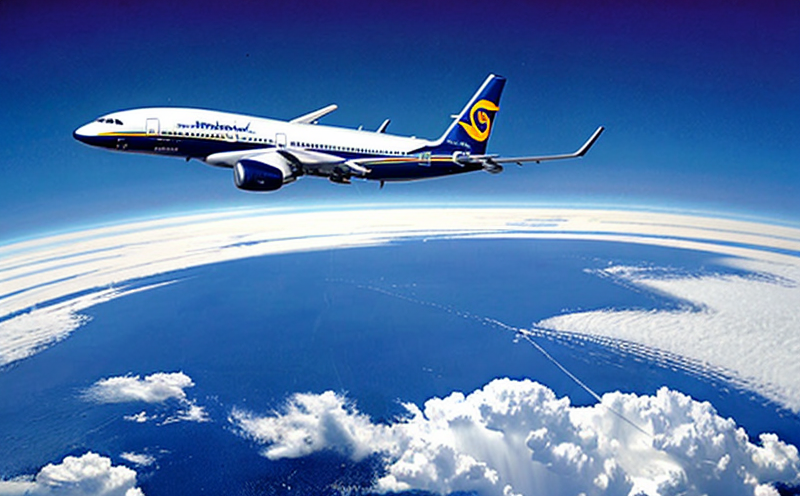Testing the crack propagation resistance of coatings used in aerospace applications
Testing the Crack Propagation Resistance of Coatings Used in Aerospace Applications Ensuring the Safety and Reliability of Your Aircraft
In the aerospace industry, coatings play a critical role in protecting aircraft surfaces from corrosion, wear, and tear. These coatings are designed to withstand extreme temperatures, weather conditions, and mechanical stress, ensuring the safety and reliability of aircraft operations. However, even the most advanced coatings can be prone to crack propagation, which can compromise their protective properties and put lives at risk.
At Eurolab, we specialize in testing the crack propagation resistance of coatings used in aerospace applications. Our state-of-the-art laboratory services are designed to simulate real-world conditions, allowing manufacturers to identify potential weaknesses in their coatings before they reach the flight deck.
Why is Testing the Crack Propagation Resistance of Coatings Used in Aerospace Applications Essential?
In the aerospace industry, safety and reliability are paramount. Coatings that fail to perform as intended can lead to catastrophic consequences, including aircraft damage, system failure, and even loss of life. By testing the crack propagation resistance of coatings, manufacturers can
Ensure compliance with regulatory requirements Aircraft coatings must meet stringent standards set by regulatory bodies such as FAA (Federal Aviation Administration) and EASA (European Aviation Safety Agency). Eurolabs testing services help manufacturers demonstrate compliance with these regulations.
Mitigate risks associated with coating failure Crack propagation can lead to coating failure, which can compromise aircraft safety. By identifying potential weaknesses in coatings, manufacturers can take corrective action to prevent accidents.
Improve product performance and lifespan Testing the crack propagation resistance of coatings helps manufacturers optimize their products performance and lifespan, reducing maintenance costs and increasing overall efficiency.
Enhance brand reputation and customer trust Manufacturers that invest in coating testing demonstrate a commitment to safety, quality, and reliability, enhancing their brand reputation and building customer trust.
Key Benefits of Testing the Crack Propagation Resistance of Coatings Used in Aerospace Applications
Our laboratory services offer numerous benefits for manufacturers, including
Improved coating performance By identifying areas of weakness, manufacturers can reformulate coatings to improve their crack propagation resistance.
Reduced maintenance costs Crack-free coatings reduce the need for costly repairs and replacements, extending aircraft lifespan and minimizing downtime.
Increased product durability Testing helps manufacturers design coatings that withstand extreme environmental conditions, ensuring products remain effective over their intended lifespan.
Enhanced safety and reliability By simulating real-world scenarios, our testing services help manufacturers identify potential hazards and develop coatings that meet the highest standards of safety and reliability.
How Does Eurolabs Laboratory Service Work?
Our state-of-the-art laboratory is equipped with advanced equipment and experienced technicians who use a variety of methods to test the crack propagation resistance of coatings. Our services include
Standardized testing protocols We follow established testing protocols to ensure consistency and accuracy in our results.
Real-world simulation Our laboratory is designed to simulate real-world conditions, allowing manufacturers to assess coating performance under extreme temperatures, humidity levels, and mechanical stress.
Data analysis and reporting Our technicians analyze data from each test and provide detailed reports highlighting key findings and recommendations for improvement.
QA Section
Q What types of coatings can be tested?
A Eurolab specializes in testing a wide range of coating materials used in aerospace applications, including epoxy-based coatings, ceramic coatings, and polymer-based coatings.
Q How long does the testing process typically take?
A The length of time required for testing depends on several factors, including the type of coating, testing protocols, and equipment requirements. Our technicians will work closely with clients to determine the most efficient testing schedule.
Q What are the advantages of testing coatings in a laboratory setting versus field testing?
A Laboratory testing offers a controlled environment where variables can be carefully managed and simulated real-world scenarios replicated. This allows for more accurate results and faster data collection compared to field testing.
Q Can Eurolab provide customized testing solutions for specific coating types or applications?
A Yes, our technicians are experienced in developing tailored testing protocols for unique coating materials or specialized aerospace applications.
Conclusion
Testing the crack propagation resistance of coatings used in aerospace applications is an essential step in ensuring the safety and reliability of aircraft operations. By partnering with Eurolab, manufacturers can identify potential weaknesses in their coatings and take corrective action to prevent accidents. With our state-of-the-art laboratory services and experienced technicians, we help companies optimize coating performance, reduce maintenance costs, and enhance brand reputation.
Contact Us
To learn more about our testing services or to discuss your specific needs, please visit our website at website URL. Our team is dedicated to helping manufacturers achieve the highest standards of safety and reliability in their coatings.




